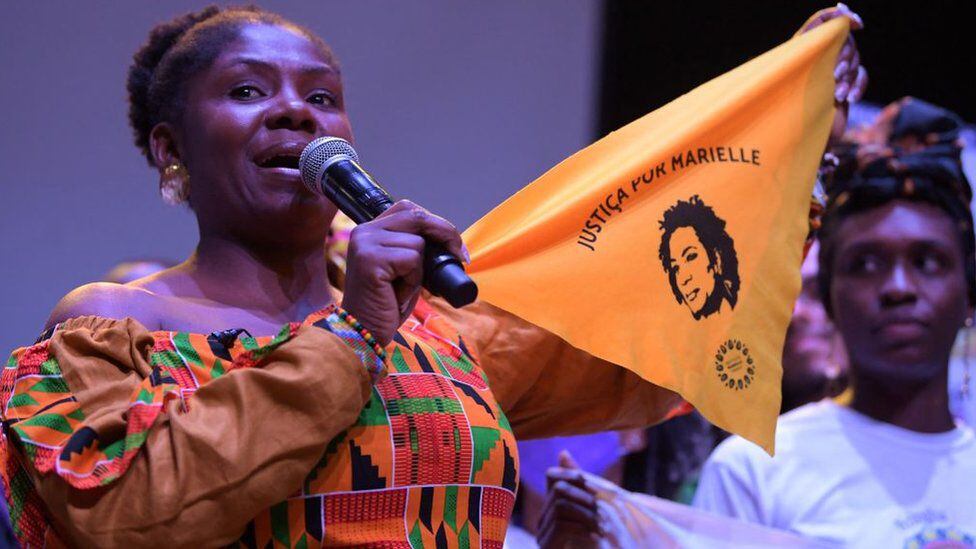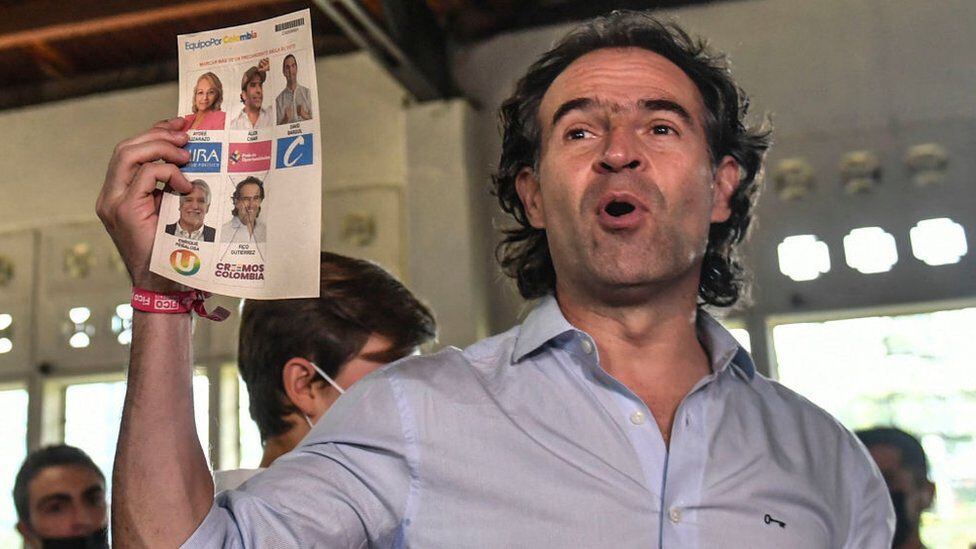Even without big surprises, the political landscape after Sunday’s elections in Colombia shows a country incomparable to that of the past.
Perhaps that explains the intensity of a day that, in other circumstances, could have been a formality: the internal election of the candidates of each coalition and the formation of the Senate and the Chamber.
SIGHT: How close is the economic relationship between Russia and China (and why it is key in times of war)
But, precisely because of the novelty of the inter-party consultations, which dominated media coverage for months, a day in pre-election theory became a kind of first round in a three-round election that will define power in the country between 2022 and 2026.
On May 29 Colombians will vote for president in the first round and a second round is likely to be necessary on June 19.
- Why did Russia never join NATO?
- Back to the USSR?: How the departure of foreign companies from Russia leaves the country close to the Soviet era
- “Of the 10 brothers only I was left”: the incredible story of the survivors of the first atomic bomb test
According to Sunday’s results, the presidential campaign seems polarized between the left and the rightdespite the fact that the legislative ones showed a country that is fragmented, diverse and difficult to fit into a single —or two, or three— ideological spectrum.
It was known that the stakes this March 13 were high. And the results show a political panorama that Colombia has not gone through, despite the fact that some elements of the past are still valid.
These, then, are three unexpected results of Sunday’s election.
1. The overwhelming force of Petro
The polls have Gustavo Petro as the favorite candidate for months, if not years.
The senator and former mayor of Bogotá lost the second round 4 years ago against Iván Duque and since then he has dedicated himself to campaigning and oiling his candidacy.
SIGHT: How the siege of Leningrad was and why many in Ukraine now remember it after the Russian invasion
It was hoped, then, that he would do well. But that a former guerrilla critical of the status quo is therefore the favorite of an election is an unusual development for a country where the right almost always ruled.
With 5.7 million votess, the referendum of Petro’s coalition, the Historical Pact, doubled in votes the total of the other two referendums, from the center and the right, which were elected on Sunday. Petro individually got 4.5 million, the highest vote anyone has ever had in an internal.
But also, for the first time in the history of the country a left movement will be the most numerous force in Congress.
According to the Registrar’s Office, the Pact achieved 16 senators and 25 representatives to the Chamber, a number that will force it to build bridges with other parties, but it puts it at an advantage to be, whether it wins the presidency or not, the majority coalition in the Legislative.
The question now is whether Petro will be able to win, as he said on Sunday, in the first round. He needs to add another 5 million votes, which is difficult despite his overtures with the Liberal Party and the Green Party.
Only Álvaro Uribe, the most popular politician in Colombia’s recent history, has won an election in the first round. Since then, politics in Colombia has been defined between uribismo and anti-urubismo.
Many take the second round for sure this year, but it is clear that, unlike the previous ones, this presidential election will be defined between Petrism and anti-Petrism.
2. The phenomenon Francia Márquez

In the consultation of the Historical Pact, Petro beat Francia Márquez by 65 percentage points, an Afro social leader who, however, became the most innovative phenomenon of the day.
39 years old, Márquez comes from a place where traditionally politicians of national influence have not left in Colombia: the countryside and black culture. He was born in Suárez, Cauca, a region in the south-west particularly affected by drug trafficking, illegal mining and the armed conflict.
She herself has been the target of several attempts on her life.
Lawyer, feminist and symbol of a popular culture that tries to reconnect the country with its ancestral and Afro roots, Márquez entered politics and won several international awards for his (successful) fight against large mining companies.
That a leader of these characteristics has taken 800,000 votesthe third most voted candidate on Sunday, is a historic development for Colombia.
Now Márquez is projected not only as the vice president or one of the star ministers of Petro’s potential cabinet, but also as one of the most influential politicians of the coming decades in Colombia.
3. The success of the machines that many considered dead and the failure of those that many believed to be vigorous
Much has been said in recent months about the so-called machinery, patronage schemes through which candidates add support with the endorsements —and, sometimes, the purchase of votes— from local powers entrenched there for decades.
On Sunday, the machines that were considered vestiges of a past that nobody wants to repeat showed their power, especially the two forces that traditionally dominated politics in the 20th century: the Liberal Party (15 senators) and the Conservative Party (16 senators).
With these results, both will play a crucial role in the campaign and in the next government. Allying with them is a guarantee of political power.
And while the traditional ones were valid, there were machines that were burned despite its reputation as the new political force in the country.
Perhaps the most striking was Alexander Char, a former mayor of Barranquilla, owner of supermarkets and soccer teams who is famous for managing the Atlantic coast at will. He lost the right-wing referendum by 40 points against Federico Gutiérrez, former mayor of Medellín and at the moment the right’s strongest card.

Another unexpected disaster, although different in its causes, was that of the New Liberalisma party that tries to revalidate the legacy of the former Liberal presidential candidate Luis Carlos Galan and summoned a series of personalities from the media and academia for these elections.
They only won one seat in the House, an unusual result judging by the media coverage that inspired the movement.
And although a great performance by Uribismo was not expected in these elections, the loss of strength of the Democratic Center in Congresswhich went from being the first bench in the Senate to being the fifth (from 19 seats to 14), is another notable development in Colombian politics.
Álvaro Uribe, worn by decades of politics and scandal and the outgoing and unpopular government of Iván Duque, has played a timid role in the presidential campaign so far.
However, the votes that previously went to Uribe and Duque now went to Federico Gutiérrez, who looks vigorous and Petro’s most likely opponent in a second round.
Many speak of Fico as the candidate “in the shadow” of Uribe: the leader of a deuribized right.
But giving Uribeism for dead in Colombia is impossible, no matter how much they have lost legislative force. What is clear is that his strategy no longer has the former president, nor the so-called “democratic security”, as the main card.
And that, in the country that elected Uribe or Uribe’s candidate in four of the last five elections, is an extraordinary event.
______________________________
- Putin says Western sanctions are like a ‘declaration of war’
- Ukraine shows on social networks the missile attack on a helicopter: “This is how the Russian occupiers die!” | VIDEO
- Visa and Mastercard suspend operations in Russia due to the invasion of Ukraine
- The strange act of Vladimir Putin between jokes, flowers and stewardesses in full offensive in Ukraine
- British journalists recorded the moment they were fired upon by Russian troops in Ukraine
- War correspondent in Ukraine: “No one imagined that this would happen with such brutality”
Source: Elcomercio

:quality(75)/cloudfront-us-east-1.images.arcpublishing.com/elcomercio/GIYTCNRNGAZS2MJUKQYDAORSGE.jpg)


:quality(75)/cloudfront-us-east-1.images.arcpublishing.com/elcomercio/GE3DAMBNGAZC2MJQKQYDAORRGY.jpg)


